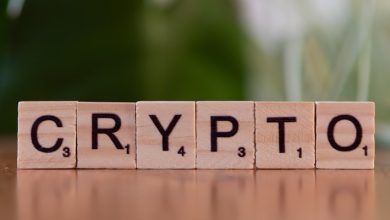What Are Altcoins? A Guide to Alternative Cryptocurrencies

- Understanding the Basics of Altcoins
- Exploring the Various Types of Alternative Cryptocurrencies
- The Rise of Altcoins in the Crypto Market
- Investing in Altcoins: Tips and Strategies
- Challenges and Opportunities of Altcoin Trading
- The Future of Altcoins: Trends and Predictions
Understanding the Basics of Altcoins
Altcoins are alternative cryptocurrencies to Bitcoin that have gained popularity in recent years. These digital coins offer investors a diverse range of options beyond the original cryptocurrency. Understanding the basics of altcoins is essential for anyone looking to diversify their investment portfolio.
One key difference between altcoins and Bitcoin is their underlying technology. While Bitcoin uses a proof-of-work consensus mechanism, many altcoins utilize different algorithms such as proof-of-stake or delegated proof-of-stake. This can impact factors like transaction speed, security, and energy consumption.
Another important aspect to consider when it comes to altcoins is their use cases. Some coins are designed for specific industries or purposes, such as privacy-focused transactions or decentralized applications. Investors should research the unique features and potential applications of each altcoin before deciding to invest.
Exploring the Various Types of Alternative Cryptocurrencies
There are many different types of alternative cryptocurrencies, or altcoins, that have emerged in the market. These altcoins offer unique features and functionalities that differentiate them from traditional cryptocurrencies like Bitcoin and Ethereum. Some of the most popular types of altcoins include:
- Privacy Coins: These altcoins focus on providing enhanced privacy and anonymity for users. Examples include Monero, Zcash, and Dash.
- Smart Contract Platforms: These altcoins enable developers to create decentralized applications (dApps) and smart contracts. Ethereum is the most well-known smart contract platform, but others like EOS and Tron are also gaining popularity.
- Stablecoins: These altcoins are pegged to stable assets like fiat currencies or commodities to reduce price volatility. Tether, USD Coin, and Dai are examples of stablecoins.
- Utility Tokens: These altcoins are used within specific ecosystems to access products or services. Examples include Binance Coin, Basic Attention Token, and Chainlink.
- Security Tokens: These altcoins represent ownership of real-world assets like stocks, bonds, or real estate. Security tokens are subject to securities regulations and are designed to provide more transparency and compliance.
It’s important for investors and users to research and understand the different types of altcoins available in the market before investing or using them. Each type of altcoin has its own unique characteristics, use cases, and risks. By exploring the various types of alternative cryptocurrencies, individuals can make informed decisions and diversify their cryptocurrency portfolios.
The Rise of Altcoins in the Crypto Market
With the growing popularity of cryptocurrencies, altcoins have been on the rise in the crypto market. These alternative cryptocurrencies offer investors a diverse range of options beyond the well-known Bitcoin. Altcoins provide unique features and functionalities that cater to different needs and preferences in the digital asset space.
One of the main reasons behind the rise of altcoins is their potential for higher returns on investment compared to Bitcoin. While Bitcoin remains the dominant player in the market, altcoins have shown significant growth and have caught the attention of many investors looking to diversify their portfolios. This increased interest in altcoins has led to a surge in their market capitalization and trading volume.
Another factor contributing to the popularity of altcoins is the innovation and experimentation happening within the cryptocurrency space. Developers and teams behind altcoins are constantly exploring new technologies and use cases, pushing the boundaries of what is possible with blockchain and digital assets. This creativity and innovation have attracted a community of supporters and enthusiasts who are passionate about the potential of altcoins to revolutionize various industries.
Furthermore, the decentralized nature of altcoins offers a level of transparency and security that is appealing to many users. Unlike traditional financial systems, which are centralized and controlled by institutions, altcoins operate on decentralized networks that are maintained by a community of users. This peer-to-peer network provides a level of autonomy and security that is highly valued in today’s digital age.
Overall, the rise of altcoins in the crypto market signifies a shift towards a more diverse and dynamic ecosystem of digital assets. As more investors and users recognize the potential of altcoins, their presence in the market is likely to continue growing. Whether you are a seasoned investor or a newcomer to the world of cryptocurrencies, exploring altcoins can offer you a unique opportunity to participate in the future of finance.
Investing in Altcoins: Tips and Strategies
Investing in altcoins can be a lucrative opportunity for those looking to diversify their cryptocurrency portfolio. However, it’s essential to approach altcoin investment with caution and a solid strategy in place. Here are some tips and strategies to consider when investing in altcoins:
- Do thorough research before investing in any altcoin. Look into the team behind the project, the technology they are using, and the problem they are trying to solve.
- Diversify your investments across different altcoins to minimize risk. Avoid putting all your funds into a single altcoin.
- Consider the market cap and trading volume of the altcoin. Higher market cap and trading volume can indicate a more stable investment.
- Stay updated on market trends and news related to the altcoins you are investing in. This will help you make informed decisions about when to buy or sell.
- Set realistic goals and be prepared for volatility in the altcoin market. Prices can fluctuate significantly, so it’s essential to have a long-term investment perspective.
By following these tips and strategies, you can navigate the world of altcoin investment more effectively and increase your chances of success. Remember to always do your due diligence and never invest more than you can afford to lose. Happy investing!
Challenges and Opportunities of Altcoin Trading
When it comes to altcoin trading, there are both challenges and opportunities that traders need to be aware of in order to be successful in the cryptocurrency market.
- Volatility: Altcoins tend to be more volatile than Bitcoin, which can present both opportunities for profit and risks of significant losses.
- Liquidity: Some altcoins have lower trading volumes, making it harder to buy or sell large amounts without affecting the price.
- Regulatory uncertainty: Altcoins operate in a largely unregulated market, which can lead to legal challenges and uncertainty for traders.
- Competition: With thousands of altcoins available, traders must research and choose wisely to find the most promising projects.
Despite these challenges, there are also opportunities for traders who are willing to put in the time and effort to analyze the market and make informed decisions.
- Diversification: Altcoins offer a way to diversify a cryptocurrency portfolio beyond just Bitcoin, potentially increasing overall returns.
- Early adoption: Investing in promising altcoins early on can lead to significant profits if the project gains traction and popularity.
- Innovation: Many altcoins are built on innovative technology that could disrupt traditional industries and offer new investment opportunities.
- Community: Altcoins often have passionate communities of supporters who can help drive adoption and increase the value of the coin.
The Future of Altcoins: Trends and Predictions
The future of alternative cryptocurrencies, or altcoins, is an exciting and dynamic landscape that is constantly evolving. As the popularity of altcoins continues to grow, so too do the trends and predictions surrounding them. Analysts and experts in the cryptocurrency space are closely monitoring the developments in altcoins to anticipate where the market may be headed in the coming years.
One of the key trends in the altcoin market is the rise of decentralized finance (DeFi) projects. DeFi platforms allow users to participate in financial services such as lending, borrowing, and trading without the need for traditional intermediaries. This trend has gained momentum in recent years and is expected to continue to shape the altcoin market in the future.
Another notable trend in the altcoin space is the increasing focus on scalability and interoperability. Scalability refers to the ability of a blockchain to handle a large number of transactions, while interoperability refers to the ability of different blockchains to communicate with one another. Projects that address these challenges are likely to gain traction in the altcoin market as users seek faster and more efficient transaction processing.
Looking ahead, predictions for the future of altcoins are varied. Some analysts believe that altcoins will continue to grow in popularity as more investors seek alternatives to traditional cryptocurrencies like Bitcoin. Others predict that regulatory challenges and market volatility could impact the growth of altcoins in the future.
Overall, the future of altcoins is a topic of much speculation and debate in the cryptocurrency community. As the market continues to evolve, it will be important for investors to stay informed about the latest trends and predictions in order to make informed decisions about their altcoin investments.



